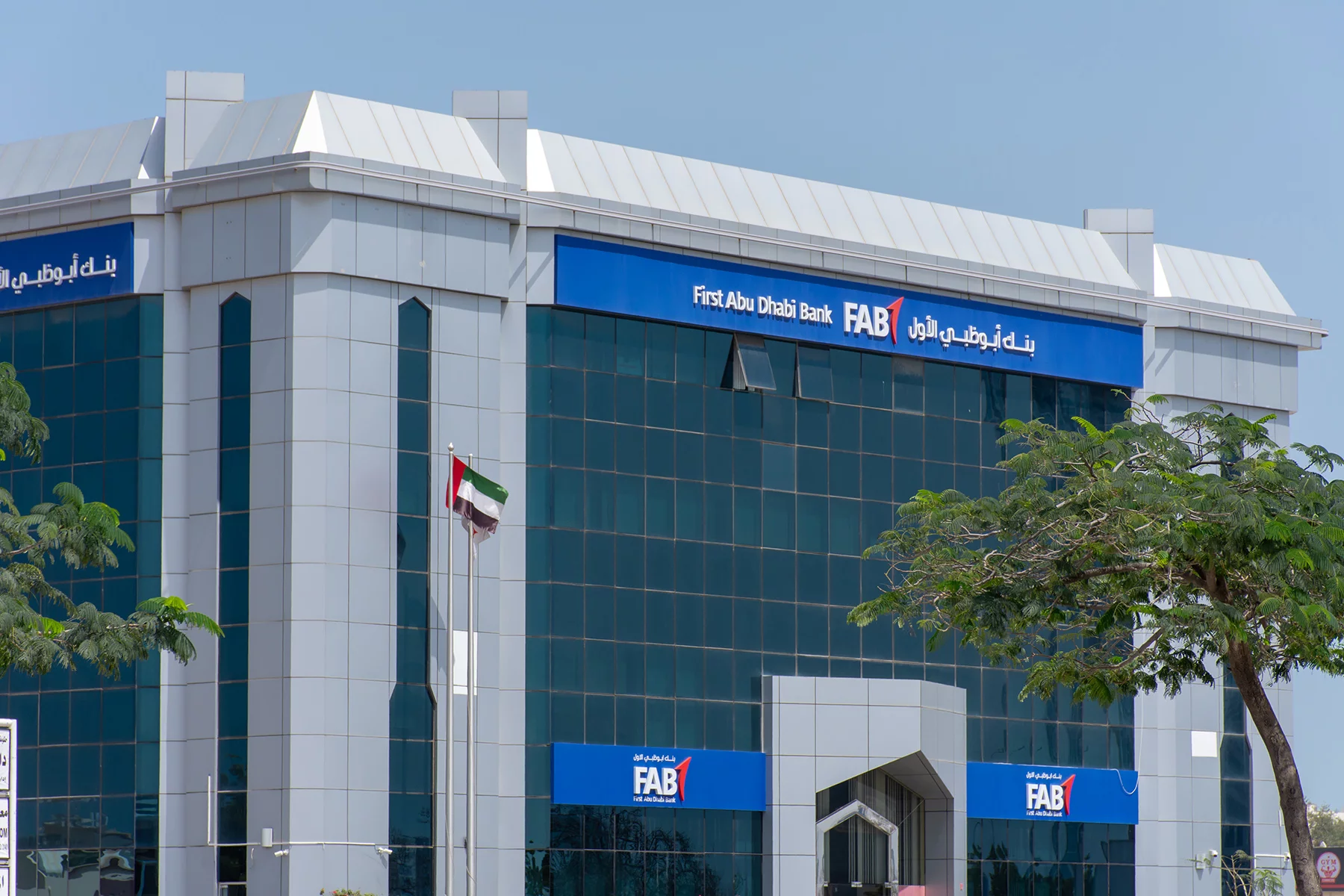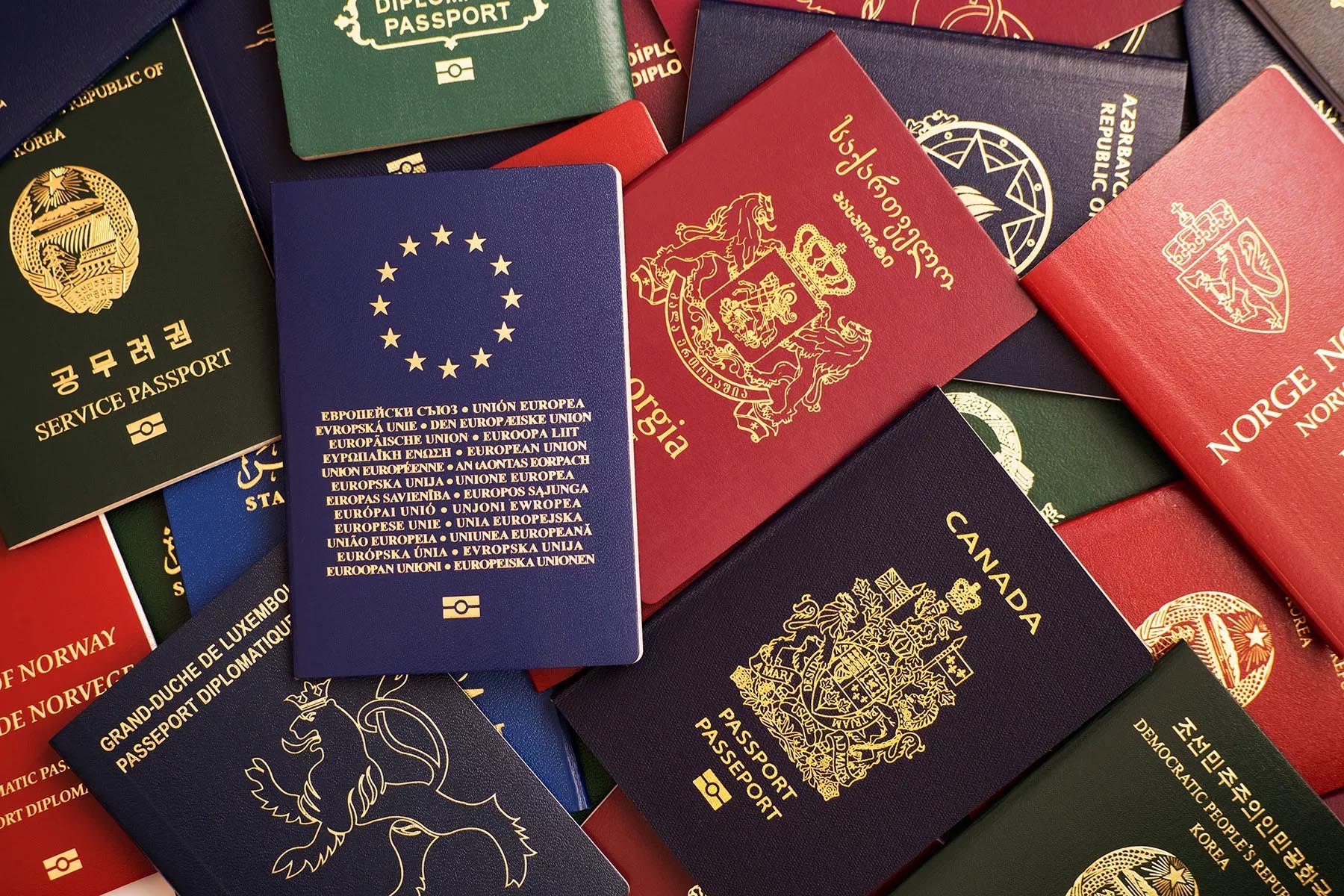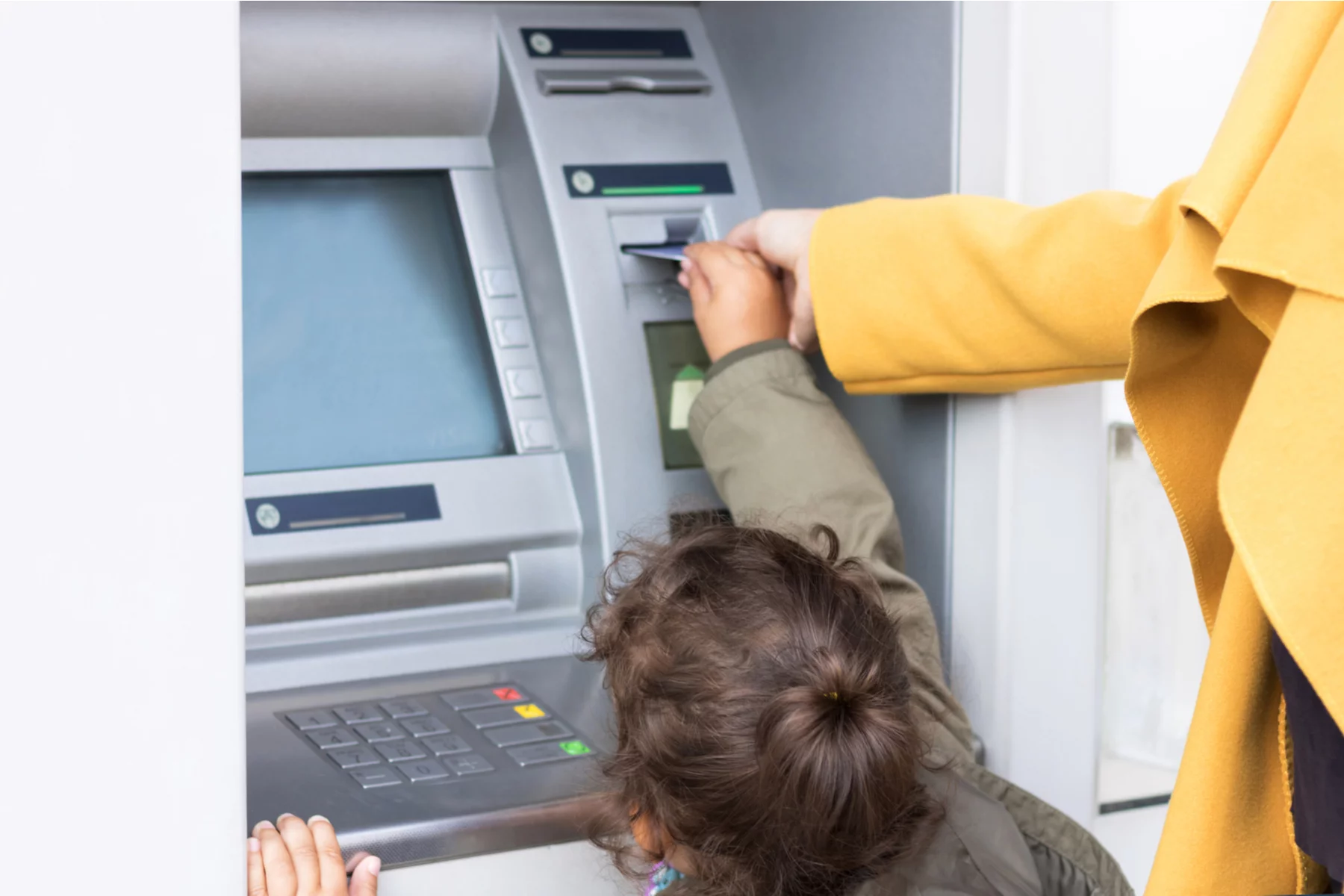Opening a personal bank account in the UAE is like everything else. In a country that has elevated luxury to a fine art, most things are available via home delivery, so why should banking services be any different? Once you’ve got your residence visa, simply make a phone call, and then sit back and let them send an agent to your home – or office.
In this guide, we explain everything you need to know about accessing banking services in the UAE, including how to open a bank account in the Emirates, what documents you need to provide, and how you can go about closing a bank account. The guide includes the following sections:
- Banking in the UAE
- Do you need a bank account in the UAE?
- Before you open a bank account in the UAE
- Types of bank accounts in the UAE
- How to open a bank account in the UAE as an expat
- Mobile banking in the UAE
- Opening a corporate bank account in the UAE
- How to open bank accounts for children in the Emirates
- What to do if you are refused a bank account in the UAE
- Choosing a bank account in the UAE
- Banking services in the UAE
- Managing your bank account in the UAE
- Bank account charges
- Changing banks or closing a bank account in the UAE
- Useful resources
Wise
If you’re moving money abroad, check out Wise. This well-known platform provides competitive rates, low fees, and transparent transactions. Experience efficient, cost-effective international transfers by joining Wise today.
Banking in the UAE
The UAE has a robust banking sector that is regulated by a central bank established in 1980. There are approximately 50 local and foreign banks in the country. The rating agency Moody’s classifies the UAE banking system as stable due to the banks’ resilient capital levels and liquidity buffers. Banks in the UAE are primarily deposit funded. Moreover, their strong capital levels provide a large, loss-absorbing buffer.

There are four types of banks that operate in the UAE, as follows:
- Commercial banks
- Investment banks
- Industrial banks
- Islamic banks
In recent years, banks in the UAE have expanded their services to cater to consumers mindful of Islamic financial requirements with Shari’a banking services. There are eight full-fledged Islamic banks and 23 Islamic windows set up by conventional banks in the UAE. Collectively, these institutions account for 19% of the total banking sector assets.
Banks in the UAE have adopted several global standards, including the International Accounting Standard, the International Financial Reporting Standards, and most recently, the capital adequacy regulations in line with Basel III regulations. All banks operating in the UAE offer services in English and Arabic.
Do you need a bank account in the UAE?
While it is possible to manage your money using an overseas account, most expats benefit from having a local bank account in the UAE. For one thing, employers may require you to have a local account. Secondly, although the UAE’s banking system is well connected to other countries, local creditors may not be willing to transfer money overseas because of the high fees involved. Third, a local account eases the process of obtaining credit cards and taking out a car loan or a home mortgage.
Before you open a bank account in the UAE
If you’ve just moved to the UAE, you’ll find it easy enough to withdraw any cash you need from local ATMs, but you’ll often be charged for each transaction. Such fees can range to AED 25.
Shopping is easier with a credit or debit card and UAE retailers accept a wide range of card associations, including Visa, Mastercard, American Express, and China Union Pay. However, some transactions, such as short taxi fares or small purchases, are best done in cash.
Many employers will advance you a little cash for essentials such as your home rental deposit, as well as for living expenses.
In theory, it’s possible to open a UAE savings bank account before you land. However, such accounts carry high minimum balance requirements. It makes sense, therefore, to wait until you are actually in the UAE and have your residence visa stamped in your passport before opening a bank account.
Types of bank accounts in the UAE
As with other countries, banks in the UAE offer several different types of personal accounts for residents and non-residents alike.
Current accounts
These are great for everyday transactions and transfers. They also come with checkbooks, which you’ll need in order to issue post-dated rent checks to your landlord. Typically, banks in the UAE offer two kinds of current accounts, with and without salary transfers. If you’re employed, it makes sense to open an account with your company’s bankers. This is to ensure that you get the salary as soon as it’s transferred. With another bank, transfers can take a day or two longer.
Savings accounts
If you want your money to work for you, ask about a savings account. These typically offer higher interest rates than current accounts, but may have limited access to funds, and presume penalties for withdrawals. Savings accounts can offer a fixed or variable interest rate. You can choose to denominate them in dirhams, US dollars, euros or pounds sterling. Savings account also work as salary accounts, but typically do carry the benefit of a checkbook.
Investment accounts
Banks operating in the UAE also offer investment services. You can open an investment account on signing an investment agreement with the bank. Such contracts may run from 12 months to five or 10 years or more. Such agreements cover the management of your funds with a minimum assured return of 3 to 7% or more per year. Minimum investment balances, however, vary from bank to bank.
Offshore accounts
As an expat haven, offshore banks from jurisdictions all over the world offer representations in the UAE, particularly in Dubai. Anyone with a valid residence visa in the UAE can open an offshore bank account to import and export funds. Offshore banking is generally considered to be stable, reliable, and secure and many offshore accounts also come with distinct financial and legal advantages, such as lower tax rates.
In the UAE, offshore banking encompasses a range of services, including asset protection, private bank accounts, wealth management, portfolio management, tax consultation, inheritance planning, and company formation. Some of the major banks are HSBC Offshore, Abbey National Offshore, ABN Amro, Dresdner, and Barclays.
How to open a bank account in the UAE as an expat
Establishing a banking relationship in the UAE is quick and efficient. In general, the process takes anywhere from a day or two to a couple of weeks, depending on the kind of account. Different accounts require different documents.

Expats can open bank accounts in the UAE within a couple of working days. As a resident, the basic requirements for opening a personal savings or current account are:
- Your original passport plus a copy
- A copy of your visa page proving you are a resident of the UAE
- A salary certificate (get one from your company’s HR department)
- Certain banks may ask for your Emirates ID card, but you can usually provide this later if you haven’t received it yet. Instead, they may just ask for a copy of your Emirates ID registration form.
Non-residents may only open savings accounts. While you won’t be able to ask for a checkbook, you will, however, be given a debit card to withdraw money. In addition, non-resident accounts are subject to a minimum and/or maximum balance. A bank may also decide to run a background check before allowing you to open an account.
In addition, non-residents may be asked for the following documents:
- Latest utility bill
- An original reference letter from another bank where the applicant has an account
- The most recent six-monthly personal bank statement from the applicant’s country of origin or anywhere in the world
- Information on the source of incoming funds
Mobile banking in the UAE
The UAE’s love for all things techno-forward extends to banking. Two banks offer now allow residents to open accounts over the internet via a smartphone app, which are:
- Liv, backed by Emirates NBD
- Neo, powered by Mashreq

Once you’ve downloaded the app, scanned your Emirates ID and topped up the account, a local delivery service will contact you within a day and drop off your new debit card. Typically, these cards work internationally and at a range of ATMs. Residents are also issued with IBAN account numbers and Swift codes, so transferring to and from any other bank account is possible. Most established banks offer internet and mobile banking.
Opening a corporate bank account in the UAE
If you need a bank account for commercial reasons, you’ll need to establish a company first and then open an account. UAE regulations do not allow you to do business through a personal account. In general, your corporate account will need to be a current account to facilitate a high volume of transactions. The process takes two to four weeks.
Expats in the market for business accounts require an additional set of documents. While these vary according to the bank and type of company, they might include:
- Company trade license
- Certificate of registration
- Share certificates
- Company memorandum and articles of association
- Board resolution empowering a company officer to open the account
- Passport and visa copies for shareholders and authorized signatories
How to open bank accounts for children in the Emirates
UAE Central Bank regulations state that only individuals over the age of 21 may open bank accounts. An 18-year-old may open their own account only if they are employed by a government or semi-government entity. Under those ages, children require assistance from a parent or guardian.

It’s important to note that UAE Central Bank regulations only permit fathers to open bank accounts for their children, as they are deemed to be their natural guardians or custodians in line with Sharia law. Mothers, even if they are legal guardians, cannot open accounts for their children. Once an account has been set up on behalf of a minor by the father, the father can then provide a Power of Attorney so that the mother can manage the account on an ongoing basis without the father being present.
Nevertheless, banks in the UAE offer a vast variety of savings accounts for children. The Islamic banks have taken the lead on this front. To instill the habit of saving early on, children are enticed with money boxes, special cartoon characters that teach the ABCs of saving, complimentary prepaid cards and colorful welcome packs.
In line with UAE laws, parents cannot make any withdrawals until the child reaches the age of 18. However, if you wish to allow your child a debit card, some banks can provide them for children after the age of 15.
The documents required to open a bank account for a child are as follows:
- The child’s original passport plus a copy
- The guardian’s original passport plus a copy
- A copy of the visa pages for both the child and their guardian
- The guardian’s salary certificate
- Emirates ID card copies for both
What to do if you are refused a bank account in the UAE
While extremely unlikely that a bank will refuse to open an account for a legally resident expat, they are within their rights to do so if you could be a risk.
Each bank has its own regulations regarding a customer profile and their activities and minimum transactions. Consequently, customers are subject to specific requirements at nearly every bank.
A bank may refuse to take you on as a customer if you do not provide documents confirming your identity, your employment status and the nature of your job. In addition, customers may be rejected for the following reasons:
- If another bank has blocked your account because of suspicious activity
- You cannot confirm a source of funds
- You repeatedly fall foul of minimum balance requirements or, in case of corporate accounts, a minimum account turnover
- If you’re on a list of restricted persons (i.e. a foreign politician or a known criminal)
All banks in UAE are regulated by UAE Central bank and in order to meet international standards and requirements, Central Bank has placed a KYC Know Your Customer policy. As a regular practice, UAE banks will ask you certain questions and comment on your account transactions before as well as after opening your personal or corporate account.
Choosing a bank account in the UAE
With the high percentage of expats in the UAE, you’ll find that banks operating in the country are particularly geared towards your needs. Nonetheless, there are a few factors to consider when shopping around for a bank account in the UAE. But before you make that call, ask yourself – and the bank officer – the following questions:
- What is the minimum balance required?
- When and why might you need to pay fees and penalties?
- Are there any salary transfer requirements?
- How many withdrawals can you make each month?
- What fees apply to new checkbooks and debit or ATM cards?
- Do you need to transfer money abroad? If so, where to, and how long do transactions take to your home or target country?
- Is there an ATM near your home and near your office? International banks generally have fewer branches than local establishments.
- Does your employer bank with them? It sometimes makes sense to open an account with your company’s bankers so you can access your salary on the day it’s transferred.
- Who do your colleagues bank with and what problems have they had?
- What happens if you lose your job but have an outstanding loan? Can the bank freeze your account?
Banking services in the UAE
Expat residents in the UAE can avail of a range of services from local and international banks operating within the country. You can choose to go with your current bank when buying these services or establish a relationship with a new bank.
Credit cards
Expats with a minimum monthly salary of AED 5,000 are eligible for a credit card. Those who don’t meet this requirement then you can put down a deposit of AED 60,000 instead. The UAE’s high-consumption economy means residents have a wide choice of payment cards available, with perks including airport lounge access, airline air miles, dining discounts and more.
Car loans
Car loans are easily available in a country where the car you drive is often considered an indicator of your status. That said, local regulations only allow customers to apply for loans covering 80% of the cost of their cars. You’ll need to pay the final 20% as a deposit. So, if you want that nosebleed Lamborghini, you’ll still need to fork out a decent amount of cash. The maximum repayment period is 60 months or five years. For a second-hand car, however, the maximum repayment period is three years.
Personal loans
UAE residents can take out a range of personal loans. These may be a cash loan on the back of a credit card, or a more traditional bank transfer obtained on a visit to the branch. Don’t look for more than 20 times your monthly salary – regulations don’t allow it. The maximum repayment period is 48 months or four years.
International money transfers in the UAE
With a wide array of international banks in the UAE, expat residents can often simply transfer money overseas via their smartphone. Many local banks have correspondent relationships with institutions in other countries, so depending on where you want to move your money, it’s worth checking about these. Free transfers to some countries, such as India, are considered the norm.
However, there are alternative money transfer solutions to banks that can sometimes offer easier and cheaper international transfer options. The following providers offer a range of international money transfer options:
- CurrencyFair offers money transfers to over 150 countries and has exchange rates up to eight times cheaper than the banks, helping you avoid excessive bank fees.
- Wise is an international money transfer provider available in 59 countries that offers transfers between cross-border bank accounts up to eight times cheaper than traditional banks.
- XE is an online money transfer platform. They allow you to view live rates and make secure low-fee transfers to over 170 countries.
You can also use online comparison tools to save on fees, obtain the best exchange rates, and find the cheapest option for your international money transfers.
Managing your bank account in the UAE
Banks in the UAE cater to customers in a variety of different ways. You can choose how you manage your money and finances with Emirati banks, whether via counter services or remotely.
- Face-to-face: Although digital and mobile banking is now the norm, customers may still want to head to the branch for certain procedures. While banks are slowly moving to branchless banking, several financial institutions in the UAE have service counters at prominent malls and other locations around the country to better reach their customers. Appointments are usually not required.
- Online banking: You can enjoy 24/7 access to your account through online banking. Digital banking is a key feature of most modern banks in the UAE. Most services and products, including loans, are also available online and some banks now have live online chat systems to deal with issues.
- Mobile banking: Smartphone or mobile banking has taken off in the UAE. Many of its tech-savvy residents now prefer to manage their finances from smartphone devices. Mobile-only banks offer all their services through an app; in fact, they don’t use physical branches at all. You can manage your funds, access services, and make a range of payments all at the touch of a screen.
Bank account charges
Fees for banking transactions in the UAE are standardized to prevent financial institutions from overcharging their customers. As of the most recent update in 2018, these fees are capped as follows:
| Account opening fees | None |
| Minimum balance | Maximum of AED 5,000 |
| Monthly minimum balance penalty | AED 50 |
| Using another (local) bank’s ATM in the UAE | AED 2 |
| New checkbook | AED 25 (the first one is free) |
| Manager’s check issue fee | AED 30 |
| Account balance letter | AED 50 |
| No liability certificate | AED 60 |
| Release letter | AED 50 |
| Bounced check fee | AED 100 (no charge if written to yourself) |
| Account closure fee | AED 100 |
Changing banks or closing a bank account in the UAE
Expats who need to leave the UAE are generally given a month’s grace period after the cancellation of their residence visas to go about housekeeping duties. That’s more than enough time to close a bank account, which takes about five days.
Take the time to do so properly. If you simply withdraw all your funds and leave the account empty, you’re liable to be charged a monthly account maintenance fee. In such a case, you could face an unpleasant surprise when you next transit or return to the UAE.
Before you close your bank account in the UAE, you’ll need to ensure that all loans and credit card debts are repaid, that all standing orders are canceled and that there are no cheques outstanding. It is always necessary to request a confirmation from the bank, which confirms the absence of any obligations when closing your account in the UAE.
It’s important to write a closing letter and explain where you want any remaining funds transferred if you’re abroad or pick up the money in person by visiting the branch. Account closures may incur a fee; the maximum is AED 100.
Useful resources
Here’s a list of official websites and helpful web pages offering further reading on banking services in the UAE:
- Central Bank of the UAE
- Yallacompare – a banking comparison website
- Souqalmal – a banking comparison website
- Gulfnews.com – a readers’ service





